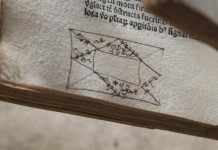 “A Beautiful Mind,” the inspiration of the book and film by that name, died over the weekend.
“A Beautiful Mind,” the inspiration of the book and film by that name, died over the weekend.
John Forbes Nash, Jr., 86, and his wife, Alicia, 82, were killed Saturday in an automobile accident. A world-famous mathematician, he shared a Nobel Prize in economics for his contribution to game theory. His work helped shape fields ranging from diplomacy to law to computer science.
But when I read of Nash’s death. I thought of something else—the Five Laws of Library Science. They remind librarians of the need to help patrons find the right books, and the right books find the right readers.
All this is apropos in Nash’s case. “By the time I was a student in high school," he wrote in an essay mentioned in his New York Times obituary, “I was reading Men of Mathematics by E.T. Bell, and I remember succeeding in proving the classic Fermat theorem about an integer multiplied by itself p times where p is a prime.”
Did his parents buy Nash the book? Was it a library book? I don’t know. Nor do I know how he found Men of Mathematics.
If nothing else, however, because the right “beautiful mind” could read the right book, society benefited. As a high schooler Nash was living in West Virginia. Despite many dedicated librarians there and other high achievers of a different kind such as the writer Homer Hickam, the state is not exactly famous for well-funded libraries.
 It did help that John Nash Jr.’s father was an education-minded engineer, and perhaps the younger Nash must have benefited from gifted teachers as well. Now we have the Internet. E-books and the other riches online are themselves not enough. Still, with more of the right digital content available for the John Nashes of today and the future, all of society will come out ahead.
It did help that John Nash Jr.’s father was an education-minded engineer, and perhaps the younger Nash must have benefited from gifted teachers as well. Now we have the Internet. E-books and the other riches online are themselves not enough. Still, with more of the right digital content available for the John Nashes of today and the future, all of society will come out ahead.
With good meta-tags and search engines, students in search of the right books can discover far more than just looking at cardboard-and-paper objects on a shelf next to each other, especially if their libraries are not well stocked to begin with. Let’s admire the aesthetics of physical books and never, never let go of the history associated with them. But they are not be-all-and-end-all containers of information, especially given the economies of e-books with the right business models in place.
Also benefiting from expanded access would be beautiful minds of a kind rather different from John Nash’s, in line with Harvard psychologist Howard Gardner’s theory of multiple intelligences.
Everyone interested deserves access to a first-class academic collections. But along the way, let’s not forget the “beautiful minds” of people with different needs—hence the desirability of separate public and academic library systems online, even though the two should be intertwined in countless ways.
Related: National digital library endowment proposal makes Education Week as well as LibraryCity’s essay on the Five Laws of Library Science and a review of a book by John Palfrey, chair of the Digital Public Library of America.


































The internet will nurture both the burgeoning intellect and the things that disfigure that intellect such as schizophrenia. How will librarians wend their way through that maze. Should the become “mandatory reporters?”
Smart comment, Frank. As I’ve said, content alone isn’t enough. We need gifted and dedicated librarians and teachers to help people cope with all the data. Still, all in all, “more” is better. David